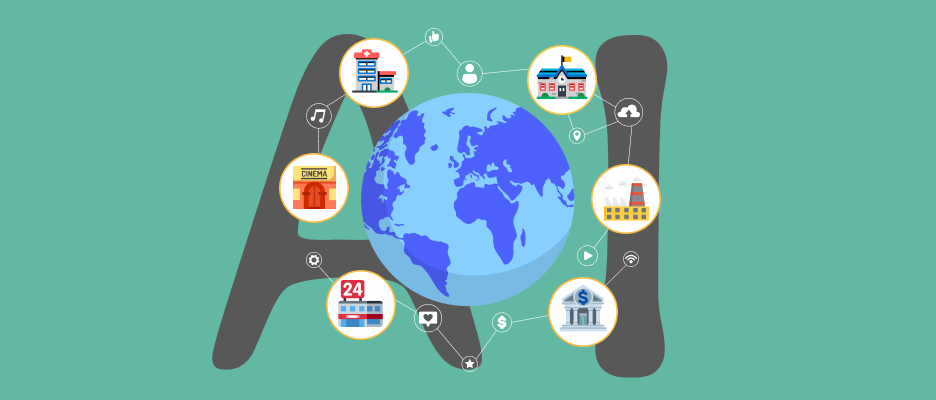How can industries combine AI to create greater value and competitiveness?
By Appar Insight, Dec. 14, 2023

With the rapid development of AI technology, more and more industries are beginning to utilize AI technology to improve efficiency and competitiveness, thus changing their mode of operation. The use of AI in various fields is no longer news, but has become a reality. From manufacturing to healthcare, from finance to agriculture, AI technology is bringing change and innovation to all areas of industry. We will explore the applications and case studies of AI in different industries, as well as the trends and challenges for future development.
After the introduction of the previous article, we already know what is AI ecosystem products, and where AI can be used in real life, now let us look deeper into the various industries in how they use AI to help enterprises to improve efficiency and value.
➭ Previous introduction: AI eco-system products, realizing what was thought to be impossible.
AI in the Industry
Medical Industry
Not only can it improve doctors' diagnostic accuracy and reduce medical errors, but it can also capture small changes that cannot be detected by the human eye, or help doctors better predict patients' risks, so as to detect diseases earlier and improve the efficiency of treatment to save medical costs. Take IBM Watson in the US as an example, they have developed "Watson for Oncology" which can help doctors better diagnose and treat cancer. The application can also provide personalized treatment plans and recommendations based on the patient's medical history and condition information, thus improving the success rate of treatment. Machine learning-based medical imaging diagnosis has been successfully applied to the diagnosis of breast cancer, diabetes, and many other diseases.
Financial Industry
It can help financial institutions to better control risks and improve their efficiency and profitability; fraud detection systems can automatically identify unusual transaction patterns, thus helping banks to detect and prevent fraud risks in a timely manner; it can help investors to make smarter investment decisions by predicting market trends and managing risks; and it can even carry out customer relationship management. For example, customer experience can be enhanced and efficiency increased through intelligent customer service and automated voice assistants, while customer relationships can be strengthened by analyzing customer data to provide better financial advice and investment recommendations.
Manufacturing
It helps enterprises to better control the production process and improve production efficiency. For example, a predictive maintenance system can analyze data from the production process to predict the likelihood of equipment failures so that repairs can be made in advance, reducing production line downtime. In addition, AI can help companies better understand bottlenecks and problems in their production processes and come up with better solutions.
Retail Industry
It can provide personalized recommendations based on customers' behavior and consumption habits, or monitor and manage merchandise through face recognition and shopping cart tracking technology to improve efficiency and reduce costs. At the same time, AI technology can also be used to predict the demand for goods and inventory levels, so that stock can be adjusted at the right time. Taking Amazon's recommendation engine as an example, it collects customers' shopping and browsing history, as well as to generate personalized product recommendations based on the personal information provided by customers. In addition, Wal-Mart utilizes AI technology to manage inventory by forecasting product demand and inventory levels to ensure that products are available and on sale, while reducing inventory costs.
Film and Television Industry
Predictions and analytics for programs and movies help TV and movie production companies better understand audience needs and preferences, or analyze scripts and images through natural language processing and image recognition technologies, thus helping production teams better understand storylines and character development and create more realistic special effects and soundtracks.
Education Industry
Assist in the analysis and prediction of student learning behavior. For example, AI can analyze students' learning habits, learning progress and learning outcomes to provide more personalized learning plans and teaching strategies. Or for teaching assistance and virtual reality learning, AI can create virtual classes and learning environments to provide a richer and more interactive learning experience.
The application of AI has brought tremendous impact and opportunities to various industries, and the development of AI not only improves the quality and efficiency of products and services, but also creates more value and brings more opportunities and challenges to various industries. However, with the development and application of AI, we also need to pay attention to its potential risks and challenges in order to realize the sustainable development and application of artificial intelligence in various industries.










